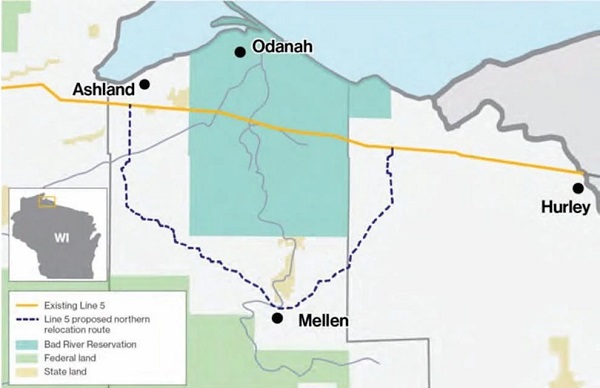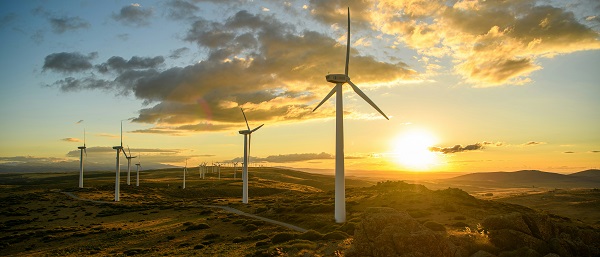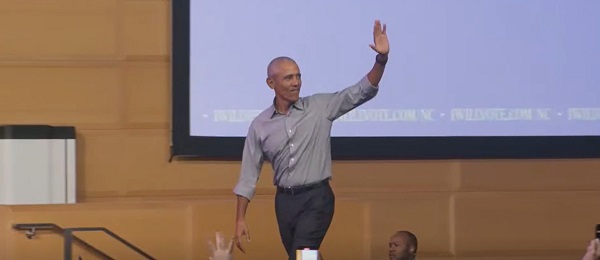By Jim Warren
Canada’s Energy Industry 10 Year Political Battle Fatigue With the Trudeau Liberals Wasn’t Fatal…and It Never Will Be!
A decade of doing battle with the Justin Trudeau Liberals was exhausting, but if history is a reliable guide, the supporters of the conventional energy sectors in the West have what it takes to recover.
Get the Latest Canadian Focused Energy News Delivered to You! It’s FREE: Quick Sign-Up Here
Enduring a decade of political ineptitude under the leadership of one of the worst prime ministers in Canadian history was difficult. We were stuck with Justin Trudeau from November 4, 2015 until March 14, 2025.
Justin is essentially gone from public view for now. But during his time in office he dominated our political life, and not in a good way.
Ten years is a nice round number. It provides the sort of time frame journalists and historians like to summarize and name. We’ve had the Roaring Twenties, the Dirty Thirties and, more recently the Me Decade of the 1970s.
For those who hope to learn from history there is value in ensuring the experience of the oil producing provinces in the West is incorporated into the written record of the Justin years.
It seems reasonable to expect that 10 plus years of fighting against Ottawa’s anti-oil, gas and coal crusade has had an effect on the collective psyche of the citizens of Alberta and Saskatchewan. While the overall effect may be far less severe than the PTSD soldiers and first responders experience – it’s still reasonable to assume nearly a decade of high unemployment and lost incomes leaves some kind of mark.
The ten lost years of the 1930s are nearly beyond the living memory of people on the prairies. However, the combined effects of severe protracted drought and the global collapse in agricultural commodity prices were permanently seared into the social fabric of Alberta and Saskatchewan.
There was plenty of despair and economic hardship to be found back then. But despite being knocked down, prairie people fought back by radically reforming our political institutions. Sure, in hindsight Social Credit and the earlier versions of the CCF had some nutty ideas (the CCF moreso). Nevertheless the governments they ran helped people crawl out from under the wreckage of the Great Depression.
Similarly, in the wake of the Pierre Trudeau government’s National Energy Program, Alberta and Saskatchewan fought successfully for the strengthening of the rights of provinces over their natural resources in the 1982 rewrite of Canada’s Constitution. Who knew back then that Justin Trudeau’s government would run roughshod over constitutionally guaranteed provincial rights?
Still, it is a comfort to know that resisting adversity in novel ways to defend and advance our economic interests is a big part of our cultural heritage. The fact that an increasing number of people in this part of country are exercising our historical penchant for self-defence is encouraging. But, as was the case back in the dust-bowl days of the 1930s and under the NEP in the 1980s, a lot of families on the prairies got clobbered during the Justin Trudeau years.
People working in the petroleum and gas sectors and their political supporters were demonized by the environmental movement and Ottawa. Worse yet, as Alberta’s Allan report indicates, the Justin Trudeau government awarded over $300 million in grants to the environmental groups attacking Western oil during just its first four years in office. At the same time, the federal government hit the producing provinces with anti-fossil fuel and anti-pipeline legislation. Yet, despite the best efforts of their provincial governments, the conventional energy industries couldn’t catch a break.
Despite it all, people on the prairies enjoyed a burst of optimism in 2024. Pierre Poilievre and the Conservatives had Trudeau on the run. The Conservatives promised to reverse the environmental laws and regulations which were so damaging to the fortunes of gas and oil. But, as it turned out, 2025 will go down as a year of spectacular political disappointment on the prairies. Ten years of confrontation and conflict with Ottawa was followed by our forlorn hope that the Liberals would be driven from office – it was psychologically exhausting and more than enough to make a lot of people once again search for radical solutions.
The Justin Trudeau Liberals were dedicated to cancelling the future of Canada’s petroleum and natural gas industries. Accordingly, they foreclosed on industry efforts to build the new export pipelines.
The prospect of new pipelines gave some hope to people employed in the petroleum sector. This was because the pipelines promised to increase the value and volume of our oil exports. It was the industry’s way of taking positive action to increase revenues and create jobs during the period of depressed oil prices.
The Liberals’ assault on the fortunes of the gas and petroleum sectors was particularly disturbing to the tens of thousands of people from Alberta and Saskatchewan who lost their jobs due to the combination of low oil prices and Liberal anti-oil policies. Job losses in the petroleum sector and the closely related manufacturing* and construction sectors hit 88,900 in the two provinces in 2017. During 2020, the first COVID year, there were 130,600 fewer people employed in those three industries than there were in late 2014, when oil prices collapsed.
No surprise, provincial government revenues suffered Trudeau effects. Alberta’s oil, gas and coal royalty revenues combined with land sale revenues declined from $9.6 billion in 2013-2014 to just $2.8 billion by 2015-2016. Finally, during the mini-boom associated with the end of most of the COVID mandates in 2022 the Alberta government’s fossil fuel royalty and land sale revenues rebounded to $12.2 billion.
Saskatchewan’s oil and gas royalty and land sale revenues for 2013-2014 (the last full fiscal year before the price collapse) were $2.1 billion. Its revenues had fallen to $0.94 billion by 2016-2017. The province’s royalty and land sale revenues rose to $2.9 billion thanks to the 2022 post-COVID bounce.
As if all of the foregoing weren’t enough to ruin the decade, we had to cope with COVID and mandate madness. The Liberals’ imposition of the Emergencies Act to prevent horn honking in Ottawa by mandate protesters will be remembered as an egregious assault on the civil liberties of blue collar Canadians. The government seized the bank accounts of Freedom Convoy participants and their supporters and prosecutors have been persecuting Tamara Lich and Chris Barber for over three years.
Westerners who’ve compared the federal government’s kid gloves treatment of pipeline protesters, who blocked major transportation arteries, with the way the truckers’ convoy was dealt with have got the message. There are laws and penalties for protest organizers from the prairies and there are grants for protest groups favoured by woke Liberals in Ottawa.
I’ve always wondered if the Freedom Convoy participants’ biggest mistake was to engage in daytime horn honking. They should have known Ottawa bureaucrats use the nine to five hours to catch up on their sleep.
Studies done in the US Rust Belt states indicate industrial decline and long-term unemployment can have significant adverse impacts on people’s physical and mental health. Male suicide rates increase, crime rates go up, more people fall victim to substance abuse and family breakdown increases.
While the required research hasn’t been done it seems reasonable to suspect the past decade has contributed to similar effects on the Canadian prairies. While that is likely the case, people on the Canadian prairies have an advantage over auto workers and steel workers from the US Rust Belt. We have had considerable experience defending our economic interests and coming up with novel home grown solutions to big problems.
What should the current Carney liberal government learn from the last 10 years? Hopefully, in the wake of Trump’s tariffs, that the oil and gas industry is an integral part of the Canadian economy and it’s time to embrace this industry and develop it to its fullest potential, much like Norway is doing, not demonize it.
What the current government should also learn is that is that western Canadians and the Canadian energy sector are a resilient bunch and will not be pushed around by agenda seeking politicians in Ottawa.
Given the last ten years, the political consequences to not learn these lessons are now much shorter.
*Job losses in manufacturing were primarily limited to Alberta. Jobs in Saskatchewan’s manufacturing sector actually grew over the 2015-2022 period.



















